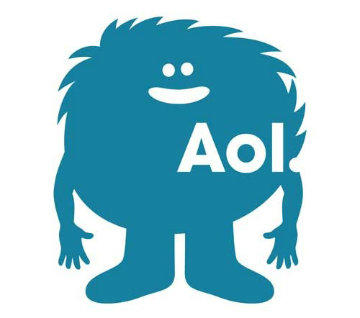
Section Branding
Header Content
AOL-Verizon Merger: The Perfect Match?
Primary Content

Verizon announced this week that it will buy AOL for $4.4 billion dollars. The telecommunications giant says the purchase will allow it to dive deeper into the mobile advertising business. The news also shows how far AOL has come since its disastrous merger with Time Warner in 2001
GPB’s Bradley George and sci-tech correspondent Renay San Miguel look back on how AOL introduced Americans to the internet, and how the company has reinvented itself.
· Why exactly would Verizon want to buy AOL, and what will it mean for Verizon customers?
If you had told me that the top prize in AOL’s portfolio was its mobile video advertising product, I would have wondered if we were talking about the same AOL. But it shows you just how much AOL has been able to pivot its business to reflect more up to date trends. Its platform for taking bids and placing ads on mobile videos is what Verizon really wants, since we’re all consuming much more video content on our smartphones and tablets. AOL also owns some of the top blogs on the planet, including the Huffington Post, TechCrunch and Engadget, so unless AOL want to spin off any of those blogs before the Verizon deal is completed in the summer, that content could be highlighted now for Verizon subscribers.
· You interviewed former AOL co-founder Steve Case last week in Atlanta. Did you talk about any possible plans for his old company?
He selfishly did NOT share any inside plans he knew regarding AOL. The focus of the interview was Case, now spending all his time as an entrepreneur, trying to find the next wave of successful startups in areas outside Silicon Valley. He’s on a tour that his investment firm Revolution calls “The Rise of the Rest,” where they’re visiting tech startup communities in cities throughout the Southeast. But the conversation did give me a chance to think back about his role in helping to establish the internet as a place that consumers would want to go, even if it was via dial-up. For a while there in the 90s, America Online was a synonym for the Internet, and it was many people’s first experience with web surfing and online communication via the AIM texting and messaging service that AOL offered. When they build the Internet museum, AOL should definitely have its own wing.
· During AOL’s heyday in the ‘90s, we all made fun of those compact discs that AOL would stuff into magazines. But Case and his company knew what they were doing, didn’t they?
They did, up until they basically used their stock price to buy a major media company called Time Warner. But up until then they were better at marketing and offering features like online auditoriums and working deals with education groups, that kind of thing. AOL came out of the early Internet access wars with companies like Compuserve and Prodigy with more than 30 million subscribers and major branding as a leader in this new Internet space. But then the ground shifted, as faster broadband speeds and more competition in the service provider space changed the game for AOL. Time Warner spun it off in 2009, and after a series of missteps that included buying neighborhood blog network Patch-dot-com and some major layoffs, AOL was talked about as buyout fodder, with Yahoo as a possible suitor. But AOL was also making moves to transform itself into more of a modern digital company, buying Huffington Post and TechCrunch and investing in advertising technologies.
· So, what does Case think of Atlanta’s startup community?
He’s very bullish on it. He likes the sectors that are thriving right now in Atlanta, with financial technology, security and marketing taking up a lot of attention with startups. Along with some other folks, he thinks more local money needs to come forward to support some of these startups, but he’s always been mindful of what’s been going on with entrepreneurship outside of the usual regions like Northern California and New York City’s Silicon Alley, and he likes what he sees so far with Atlanta.
Renay San Miguel hosts Sci-Tech Now Georgia on GPB-TV. You can listen to Renay's interview with Steve Case here.
Tags: sci-tech-now georgia
Bottom Content

